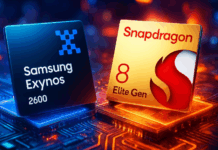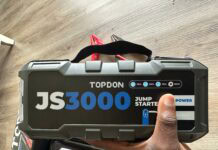Web3’s growth brings about a new era for the internet, with greater decentralization, user control, and transparency. In fact, by 2030, the global Web3 market size is estimated to reach $5.5 billion. For developers, this shift represents both an opportunity and a challenge as they adjust to the constantly changing environment.
Comprehending the Web3 stack is very important in order to make use of it fully. This guide will explain the main elements of the Web3 stack, focusing on important technologies and platforms that create the base of decentralized applications (dApps).

App Storage Platform: The Foundation of Decentralized Data
In the Web3 ecosystem, having an app storage platform plays a pivotal role. Unlike regular storage methods that depend on central servers, Web3 uses decentralized storage platforms. These platforms spread data across a group of nodes, guaranteeing duplication, safety, and censorship resistance.
A system like IPFS, for instance, uses content-addressing to store files. Instead of referring to a file by its location on a server, IPFS assigns a unique hash to each file, allowing users to retrieve it from any node in the network. This approach improves both data integrity and accessibility, making it perfect for storing unchangeable information and media files used in dApps.
Smart Contracts: The Heart of Web3 Applications
Smart contracts are agreements with self-executing terms that can be defined directly in code. They are the foundation of Web3 applications that allow for the execution of trustless transactions and complex processes without middlemen. Usually, smart contracts are drawn up with basic frameworks provided by platforms such as Ethereum, Binance Smart Chain, and Polkadot.
For most people, Ethereum is the platform of choice, with Solidity as its designated programming language. Most of the time, Ethereum is chosen because of its many positive features, such as the adequate environment and advanced construction tools. However, some people turn to Polkadot because it’s more interoperable and scalable in contrast to Ethereum. These features help surpass Ethereum’s high fees and congestion issues.
In essence, smart contracts can be implemented in different aspects like DeFi protocols, NFTs, supply chain management systems, and voting systems, among many other areas. Overall, supported and secured by blockchains, smart contracts guarantee transparency and execution of code to complete the contracts.
Blockchain Networks: The Infrastructure Layer
Blockchain networks represent the base layer of the Web3 stack; they provide the required infrastructure for building decentralized applications. Blockchain networks consist of distributed ledgers maintained by a network of nodes, which ensure transparency and safety through consensus mechanisms such as proof of work (PoW) or proof of stake (PoS).
The right network for your dApp depends on the set of factors needed for your particular application. These include transaction speed and cost, and the maturity of the network. Moreover, the future trend is cross-chain operability, which is crucial since more and more blockchains are going to be built.

Identity and Access Management: Ensuring User Control and Security
Web3 has a main principle known as user sovereignty, in which people possess complete control over their digital identities and belongings. Solutions like decentralized identity (DID) and systems for managing access based on blockchain play an important role in fulfilling this vision.
Platforms such as MetaMask and WalletConnect are wallet services that let users take care of their digital identities and securely verify transactions. These wallets function like doorways into the world of Web3, letting users interact with dApps without needing traditional login ways. Instead of using usernames and passwords for authentication, these wallets rely on cryptographic keys to confirm the identity of users, adding an extra layer of security and privacy.
Oracles: Bridging the Gap Between On and Off-Chain Data
Oracles are key elements in the Web3 stack, allowing smart contracts to communicate with information from the real world. They work as links connecting blockchain networks and outside data sources, giving out needed details for smart contracts to function properly.
An oracle provider gives a distributed network of nodes that fetches, confirms, and sends data to intelligent contracts. This ensures the dependability and safety of the data utilized in these contracts. It prevents tampering with information and guarantees interactions without trust issues.
Oracles can be used in many different ways, such as getting price data for DeFi protocols or confirming real-life events for insurance contracts. Their feature to move data from off-chain to on-chain is very important because it broadens the possible uses of smart contracts and becomes necessary for a lot of Web3 applications.
Bottom Line
The Web3 stack is an intricate and evolving world, made up of many different technologies and platforms that make decentralized applications possible. It’s vital for developers who want to create future Web3 apps to understand key parts like application storage systems, intelligent agreements, blockchain networks, identity with access control as well as oracles.
As the Web3 environment keeps changing, it becomes very important to keep updated about new advancements and recommended methods. This will help in utilizing all its abilities fully while also creating innovative solutions focused on users.


















